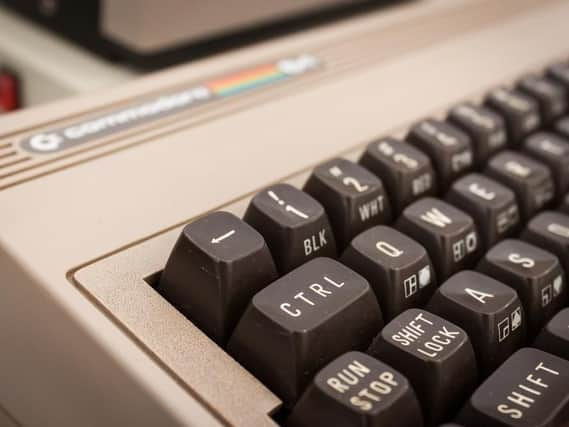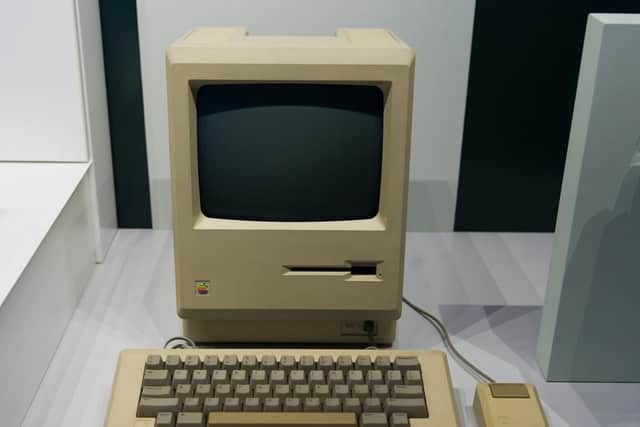The future is retro: could your old tech be worth a fortune?


Our affection for blocky, 8-bit graphics never really went away, it would seem, attested to the fact you can’t find this year’s most-wanted present, the remastered Nintendo NES Mini Classic – complete with 30 games, for love nor money, and positively ancient computers regularly trade hands for thousands of pounds.
In an age when technology has never been more advanced or graphics more realistic, who are the people shunning the glamour and convenience of the present to delve deep into the early days of computing?
Advertisement
Hide AdAdvertisement
Hide AdThough nostalgia and sentimentality undoubtedly plays a large part, the use of old hardware in modern times, known as retrocomputing, is also driven by the fascination of people too young to have used it in the first place. Ironically, the internet has been a major facilitator in bringing fans of a bygone age together.


“There’s an enormous grassroots community for retro computing online, and there are lots of forums for all the different platforms, including Reddit, and specialist websites like Den of Geek,” says Chris Green, former editor of Computing magazine and collector of computing paraphernalia.
“Gaming back in the 70s, 80s and 90s was very fun and pioneering, it was more challenging. There’s much less choice now with modern consoles, and people tend to hang on to them for much longer, so there’s less innovation. I’ve had much more fun playing Sensible Soccer than I ever did playing the newest FIFA release.”
Mr Green, 40, scours eBay and car boot sales for old consoles and computers, the vast majority of which are in perfect working condition, he says. So extensive is his collection, he has donated Amstrad PCs and Sinclair ZX Spectrum computers to the Computer History Museum in California, which houses the largest collection of computing artefacts in the world.
Advertisement
Hide AdAdvertisement
Hide AdFor a passionate collector, finding a never-opened, boxed product is the ultimate goal. Mr Green dreams of getting his hands on a working Commodore 65 computer, a short-lived version of the 1982 Commodore 64 computer with a built-in disc drive.


However, the desire to keep it as it was the day it was packaged would prevent him from opening it up, he says. “A lot of the mystique disappears the second you crack the box,” he laments.
“As much as you wanna rip it open and play it, you don’t want to take it away from being factory fresh.”
It’s not just the hardcore gamers and computing collectors getting in on the act, either. Older devices have become status symbols and talking points in the home too, says Kate Beavis, author of Style Your Modern Vintage Home, who also sells her vintage finds.
Advertisement
Hide AdAdvertisement
Hide Ad“Six years ago, old technology was being bought mainly by IT city boy collectors who loved their nostalgic gadgets – we sold a Sinclair ZX Spectrum back in 2009 for £250, which felt like a lot at the time. They’re now selling for £500.
“Since then there has been a move towards more generalists buying into the tech they played with when they were young to pass on to our kids at a time when they are heavily influenced by the newest iPhone.”
This general revival in interest for retro tech has spread into a trend for replicas, particularly for GPO rotary dial phones and record players in vintage-looking cases, and the recent uptick in vinyl sales, she adds.
The trend has also birthed numerous bizarre accessories dedicated to transforming current tablets and smartphones into twee relics, including an iPod boombox, USB-powered wireless typewriters for use with an iPad and a gramophone for iPhones. Liberty Games, which sells arcade machines and multi-game cabinets, has seen a boost in sales recently, while visitor numbers to Britain’s Museum of Computing in Swindon – which houses many computers, calculators, consoles and their packaging – have doubled in the past year, according to curator Simon Webb.
Advertisement
Hide AdAdvertisement
Hide AdThe fact that retro computers and games consoles are getting harder and more expensive to get hold of as the years go by is a large part of their appeal, he suggests. As the iPhone turns 10 in 2017, heralding a decade of touchscreen smartphones, it won’t be that long before the phone in your pocket becomes another relic in a museum. You never know, it might even make you some money.